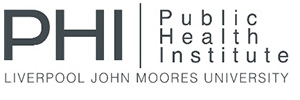PHI AHRC-MRC Global Public Health Partnership Project
The Public Health Institute (PHI) and partners have been awarded the AHRC-MRC Global Public Health Partnership grant entitled ‘Promoting positive sexual and reproductive health and accessible HIV prevention, treatment, care and support services for women prisoners in Zimbabwe and Malawi’.
The project, valued at £170,242, will be led by Professor Marie Claire Van Hout from PHI and will include partners from the Faculty of Arts, Professional and Social Studies, LJMU; the University of Zimbabwe; the University of Malawi; Batanai HIV and AIDS Service Organisation (BHASO), Zimbabwe; and the Centre for Human Rights Education Advice Assistance (CHREAA) Malawi.
The rationale for the new partnership is grounded in the recent UNODC evaluation which strongly recommended the implementation of human rights based research, policy reform and targeted services provisions focus on women prisoner sexual and reproductive health (SRH) needs in Zimbabwean and Malawian prisons.
This unique partnership will challenge and address the SRH inequalities of women prisoners, who are a vulnerable HIV/AIDS population in Zimbabwe and Malawi. Both countries are compromised by a lack of robust gender sensitive monitoring systems for HIV/AIDs in prisons, and little strategic information available around women prisoner’s experiences and their SRH needs. It will set the scene for a strong international collaborative effort to monitor, investigate, understand and promote women prisoner’s human rights and SRH needs in Zimbabwe and Malawi. The issue of HIV/AIDS in prisons is both a human rights and public health issue, which requires a strategic approach with shared goals of public health and human rights, to prevent HIV transmission and improve health for all, whilst at the same time ensuring the respect of human rights and dignity of those infected and requiring treatment.
The partnership represents a form of international sustainable development work which will create a first step in both countries towards addressing female prisoner SRH disparity, and ensure that their views are utilized to contribute to reframing of gender sensitive and human rights based prison responses and prison health policies, and enhance their access to high-quality and stigma-free SRH and HIV PTC&S prison services when needed.
Read a more detailed description of the partnership’s aims and planned activities.

Email the Public Health Institute.

